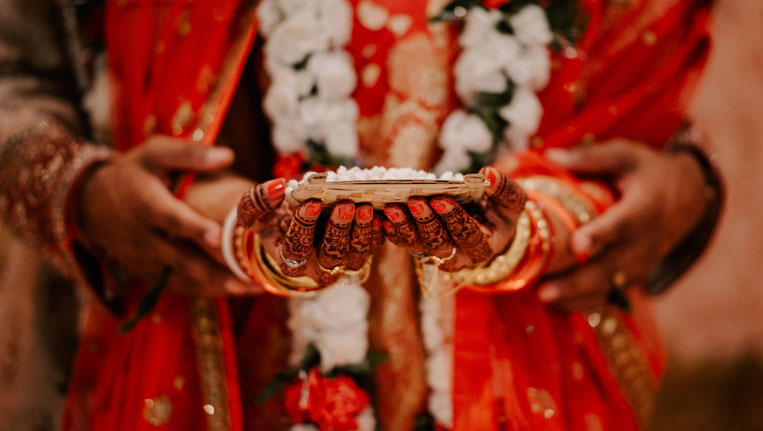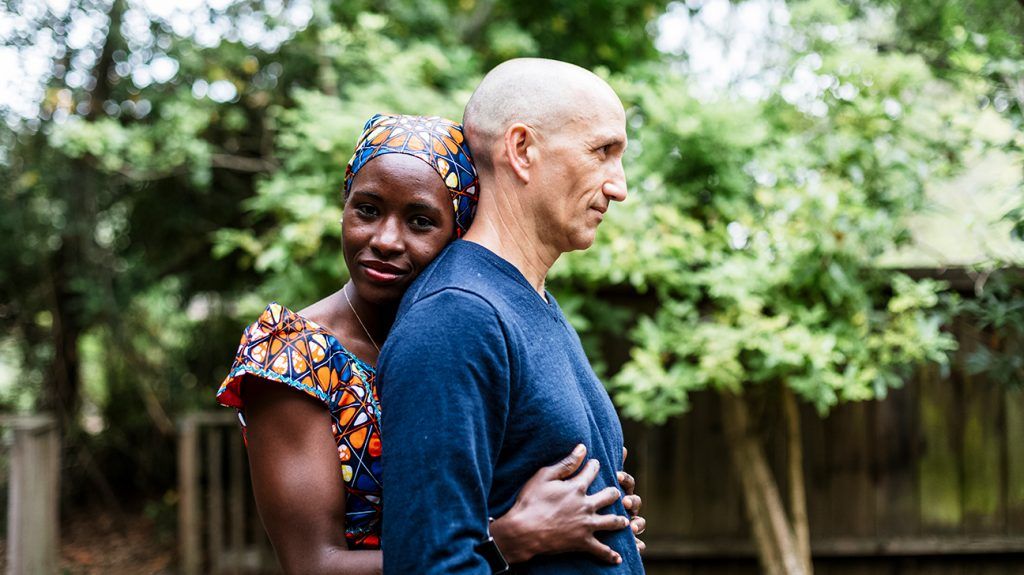

Interfaith Marriage: Navigating Cultural Differences and Religion in Marriage for Long-Term Success
Estimated Reading Time: 12 Minutes
"Love recognizes no barriers. It jumps hurdles, leaps fences, penetrates walls to arrive at its destination full of hope." – Maya Angelou
Interfaith marriage refers to the union of two individuals who identify with different religious traditions or faiths. In an increasingly global society, these marriages are becoming more common as people from diverse backgrounds and beliefs come together to create families. Understanding how cultural differences and religion in marriage impact long-term success is crucial for couples contemplating or currently navigating an interfaith relationship. This blog aims to explore these dynamics, offer practical insights, and provide guidance for lasting harmony.
Understanding Interfaith Marriage
What is Interfaith Marriage?
Interfaith marriage occurs when partners belong to different religious backgrounds. This could mean marrying someone who practices a major world religion, such as Christianity or Hinduism, or it could involve marrying someone from a different denomination within the same faith, like a Protestant marrying a Catholic. It’s essential to recognize that interfaith marriage is not just about personal beliefs, but it encompasses a rich tapestry of cultural differences that can shape the relationship. Source: Marriage Resource Centre.
Statistics and Trends
Prevalence of Interfaith Marriages: In the U.S., around 45% of marriages over the past decade were interfaith unions. This reflects society's evolving attitudes and the increasing acceptance of diverse cultural backgrounds among partners. Source: Marriage Resource Centre.
Variation Among Religious Groups:
- Jews: 27%
- Catholics: 23%
- Buddhists: 39%
- Muslims: 21%
- Mormons: 12%
Among non-Orthodox Jews, the intermarriage rate is exceptionally high at 72%. Source: Center for Radically Inclusive Judaism.
Impact of Age on Interfaith Marriage: Those marrying between the ages of 26-35 are more likely to choose interfaith unions (58%) compared to those marrying younger (48%). This statistic showcases how age and life experience can impact relationship decisions. Source: Marriage Resource Centre.
Reasons for Increasing Prevalence of Interfaith Marriages
The rise in interfaith marriages can be attributed to several factors:
- Globalization: Increased cultural interaction and exposure to diverse beliefs broaden the dating pool.
- Changing Values: More people are embracing individual choices in love and partnership, focusing on love rather than religious barriers. Source: Marriage Resource Centre.
Cultural Differences in Interfaith Relationships
Understanding Cultural Differences
Cultural differences in interfaith marriages extend beyond mere religious beliefs; they encompass traditions, customs, values, and family expectations. These can significantly impact how couples interact and build their lives together.
Common Cultural Challenges
- Holiday Observances: Different ways of celebrating significant religious holidays can create tension. For example, one partner may celebrate Christmas as a major event, while the other observes Ramadan.
- Dietary Rules: Dietary restrictions based on faith (e.g., kosher, halal) need mutual understanding and accommodation. Couples may experience conflict when determining dietary practices to follow at home or during gatherings.
- Gender Roles and Expectations: Each culture might have distinct beliefs about gender roles within the marriage and family. Addressing these expectations openly can help mitigate misunderstandings.
- Family Expectations: Differing views on the involvement of each partner’s families in significant life decisions can create stress.
- Communication Styles: Varied ways of expressing feelings, making decisions, and resolving conflicts can lead to frustration if not addressed.
Examples of Cultural Misunderstandings
For instance, a Christian-Muslim couple may face difficulties in navigating their customs, particularly during holiday seasons. If one partner is accustomed to celebrating certain traditions intensely while the other takes a more subdued approach, this can lead to misinterpretations or feelings of inadequacy.
The Impact of Cultural Differences on Marriage
Failure to address these cultural differences can lead to resentment, misunderstandings, and conflict. Awareness and proactive management of these differences are crucial for a successful relationship. Cultivating empathy and open communication can help in navigating the complexities associated with cultural diversity.
Role of Religion in Marriage
Religion as a Core Aspect of Identity
Religion often functions as a significant part of a person's identity, influencing morals, ethics, and worldviews. Understanding how each partner's faith affects daily life is vital in an interfaith relationship.
Impact on Daily Life and Significant Events
Religion influences various aspects of life, including:
- Daily Routines: Prayer times can dictate the daily schedule.
- Holiday Observances: Decisions around which religious holidays to celebrate and how to celebrate them can be contentious.
- Child-Rearing: Couples may debate religious education, ceremonies, and morality.
- Life Milestones: Traditions related to marriage, funerals, and milestones become areas of negotiation.
Potential Challenges in Interfaith Marriages
- Negotiations: Couples may face challenges in agreeing on religious practices and rituals. Ensuring that both partners feel heard and respected is crucial to maintaining harmony. Source: Essential Premarital Discussion Topics for Building a Strong and Lasting Marriage
- Family Pressure: Extended family members may exert pressure to adhere to particular religious customs, leading to further complications in navigating the relationship.
- Feelings of Marginalization: There may be moments when one partner feels sidelined or pressured to forego their beliefs for the sake of harmony in the marriage.
Opportunities for Spiritual Growth
Interfaith marriages provide golden opportunities for spiritual enrichment. Partners can learn from each other's faiths and experiences, leading to a more inclusive and expansive spiritual perspective. Understanding and celebrating differences can become a source of strength rather than division.
Navigating Challenges in Interfaith Marriages
Practical Strategies for Couples
- Open Communication: Honest discussions about beliefs, expectations, and fears should be at the forefront of the relationship. Regular check-ins can be beneficial. Source: Essential Premarital Discussion Topics for Building a Strong and Lasting Marriage
- Compromise and Flexibility: Be prepared to adapt traditions to include elements from both faiths, creating new practices that honor both cultures.
- Mutual Respect: Recognize and validate each other’s beliefs without judgment, and avoid attempts at conversion or reshaping each other’s views. Source: Setting Healthy Relationship Expectations Before Marriage
- Education and Understanding: Actively learn about each other's religions and cultures. This can involve attending religious services together or exploring cultural events side by side.
- Seek Support: Couples may find guidance through counseling services that specialize in interfaith relationships or by joining interfaith communities or support groups. Source: Journal of Couple & Relationship Therapy
Highlighting Success Stories
- Example 1: A Hindu-Christian couple celebrates both Diwali and Christmas, teaching their children the significance and values of each tradition.
- Example 2: A Jewish-Muslim couple focuses on common principles and engages in community service together, showcasing their shared values.
These stories illustrate that love and understanding can transcend differences, creating something beautiful out of diversity.
Benefits of Interfaith Marriage
- Enhanced Empathy and Broader Worldviews: Exposure to multiple cultures and perspectives fosters deeper understanding and acceptance, encouraging couples to become more culturally sensitive.
- Unique Blended Traditions: Interfaith marriages allow for the creation of new family traditions that incorporate both faiths, enriching the family experience and allowing children a multicultural upbringing.
- Personal and Spiritual Growth: Couples often challenge and deepen their beliefs, enhancing their communication and problem-solving skills.
- Strengthened Relationships: Overcoming challenges together builds resilience and trust, fostering a strong foundation for the relationship.
Long-Term Relationship Success
Contributing Factors
- Commitment and Shared Goals: Couples who prioritize the relationship and work towards common objectives can navigate differences more successfully. Source: Marriage Readiness: The Ultimate Guide to Checklists and Questions for a Lifelong Commitment
- Shared Core Values: Emphasizing universal values such as love, honesty, and integrity can help partners find common ground despite differing religious beliefs.
- Continuous Learning and Adaptation: Couples should remain open to change, both individually and as partners, as they navigate their journey together. Source: Guide to a Happy Married Life for Newly Married Couples
- Support Systems: Building a network of family, friends, and communities that respect interfaith relationships can be immensely beneficial. Sharing experiences with others increases understanding and resilience.
Understanding the Risks
Mixed-faith marriages statistically face unique challenges:
- Interfaith marriages are three times more likely to end in divorce compared to same-faith marriages. Source: Marriage Resource Centre.
- Couples may be less likely to raise their children with regular attendance at religious services, which can impact religious upbringing and community involvement. Source: Marriage Resource Centre.
Many successful interfaith couples exemplify that love, understanding, and commitment can pave the way for a fulfilling partnership.
Strategies for Overcoming Challenges
- Creating a Unified Parenting Plan: Couples should discuss and agree on how to approach religious education and practices for their children.
- Building a Strong Foundation: Focus on love, respect, and partnership as the core of the relationship, ensuring that these stay at the forefront of all decision-making. Source: Setting Healthy Relationship Expectations Before Marriage
- Regular Relationship Check-ins: Being proactive in addressing conflicts before they escalate helps maintain harmony in marriage.
Conclusion
Interfaith marriages present both beautiful opportunities and significant challenges. Understanding and respecting cultural and religious differences are paramount for lasting success. While obstacles may arise, they are not insurmountable. Couples can embrace their differences as strengths, combining their unique backgrounds into a unified experience rich with love and respect.
If you are in or considering an interfaith marriage, know that you are not alone. Seek out resources, supportive communities, and professional counseling if needed. The journey may be complex, but it can also be incredibly rewarding.
Call to Action
We invite you to share your experiences or thoughts on interfaith marriage in the comments section below. Your insights could be invaluable to others who are navigating similar paths and seeking community support.
Additional Resources
- Books: "Mixed Matches: How to Create Successful Interracial, Interethnic, and Interfaith Relationships" by Joel Crohn.
- Organizations: Interfaith Family offers a wealth of resources for interfaith couples.
- Counseling Services: Consider reaching out to a local counselor who specializes in interfaith relationships.
Together, let’s create a space for understanding, love, and acceptance within our diverse relationships.
Interfaith Marriage Cultural Differences Relationship Advice Religion Marriage SuccessFAQs
- How can we navigate holiday celebrations in an interfaith marriage? Discuss and plan ahead to incorporate traditions from both faiths, ensuring each partner feels respected.
- What if our families don't support our interfaith marriage? Open communication with family members and setting clear boundaries can help manage expectations and foster understanding.
- How should we address religious upbringing of our children? Have honest discussions about your expectations and consider exposing children to both faiths, allowing them to make informed choices.
-

-

-
 Elevate Your Haldi and Mehandi Ceremony Glam
Elevate Your Haldi and Mehandi Ceremony GlamNeeraj Singh
-
 How Engagement Party should be celebrated
How Engagement Party should be celebratedLeonard Bernstein
-
 What to include in my Wedding Website
What to include in my Wedding WebsiteDream Wedds
-

-

-

-

-

-

-
-

-

-
 The Ultimate Wedding Planning Checklist for Indian Weddings
The Ultimate Wedding Planning Checklist for Indian WeddingsSimranpreet Singh
-
 A Guide to Health, Wellness post Marriage
A Guide to Health, Wellness post MarriageSaujanya Bose
-
-
 YOUR BIO AND HOW WE MET
YOUR BIO AND HOW WE METLeonard Bernstein
-

-

-

-

-
-

-

-

-

-

-

-

-

-
 Selecting the Perfect Foundation Shade: Your Ultimate Guide
Selecting the Perfect Foundation Shade: Your Ultimate GuideDreamWedds Team
-

-
-

-
 Fade Dark Spots: Natural Remedies and Tips for Clearer Skin
Fade Dark Spots: Natural Remedies and Tips for Clearer SkinDreamWedds Team
-

-
 Personal Space: The Key to a Healthy and Balanced Marriage
Personal Space: The Key to a Healthy and Balanced MarriageDreamWedds Team
-

-

-

-

-

-

-

-

-

-

-
 The Ultimate Guide to Achieving Long-Lasting Bridal Makeup
The Ultimate Guide to Achieving Long-Lasting Bridal MakeupDreamWedds Team
-
 Health and Wellness for Brides and Grooms
Health and Wellness for Brides and GroomsDreamWedds
-

-
-

-

-
:max_bytes(150000):strip_icc()/Kitzcornermedium-c9abd848ea634040a06bb6db8b8a7304.jpg)
-

-
 Makeup Basics: Essential Cosmetics Every Beginner Should Own
Makeup Basics: Essential Cosmetics Every Beginner Should OwnDreamWedds Team
-

-

-

-

-

-

-

-
-
 Virat & Anushka: A Fairytale Wedding to Remember!
Virat & Anushka: A Fairytale Wedding to Remember!Yashashvi Mathur
-

-

-

-

-
 The Importance of a Bridal Makeup Trial for Your Wedding Day
The Importance of a Bridal Makeup Trial for Your Wedding DayDreamWedds Team
-

-
 Effective Natural Skincare Remedies to Reduce Pore Size
Effective Natural Skincare Remedies to Reduce Pore SizeDreamWedds Team
-







